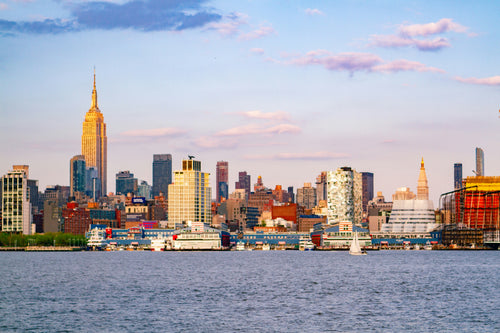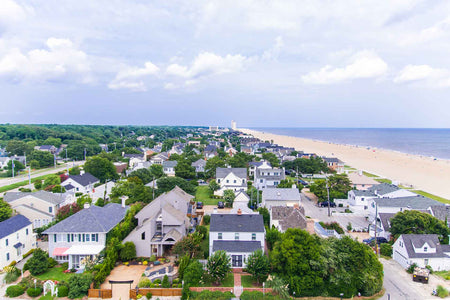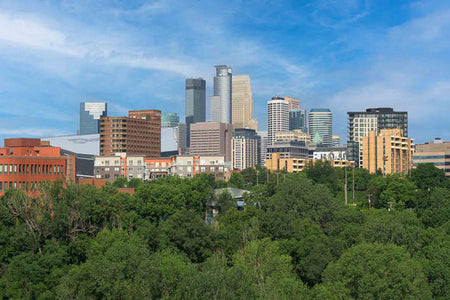Allergies can be a nuisance, causing discomfort and disrupting daily life. For individuals living in New Jersey, it is important to understand the specific triggers that can worsen allergy symptoms. By identifying these triggers, individuals can take proactive measures to minimize exposure and alleviate their symptoms. In this blog post, we will explore the common allergens found in New Jersey and provide tips on how to manage allergies effectively.
New Jersey Allergy Seasons: What to Expect Year-Round
In New Jersey, allergy seasons can vary throughout the year due to changing weather patterns and the presence of different allergens. Here’s a general overview of what to expect year-round:
Spring: March to May
Spring is a beautiful season in New Jersey, but it can also be a nightmare for allergy sufferers. During this season, oak, birch, and maple trees release large amounts of pollen, which can trigger allergic reactions such as sneezing, itchy eyes, and congestion. To minimize your exposure to pollen, it is recommended to keep your windows closed, use air purifiers, and regularly clean your living space.
Summer: June to August
Summer in New Jersey brings warmer temperatures and longer days, but it also brings its fair share of allergens. Grass pollen is the primary culprit during this season, causing symptoms such as runny nose, watery eyes, and coughing. To reduce your exposure to grass pollen, try to avoid outdoor activities during peak pollen times, such as early morning and late afternoon. Taking a shower and changing your clothes after spending time outdoors can also help remove any pollen that may have stuck to your body or clothing.
Related: Summer Allergies Guide
Fall: September to November
Fall is a beautiful season in New Jersey, but it is also a time when ragweed pollen is at its peak. Ragweed is one of the most common allergens in the United States and can cause severe allergic reactions. To minimize your exposure to ragweed pollen, it is recommended to keep your windows closed, use a HEPA filter in your home, and avoid outdoor activities on dry and windy days.
Related: Fall Allergies Guide
Winter: December to February
Winter in New Jersey is generally a relief for allergy sufferers, as most outdoor allergens are dormant during this season. However, indoor allergens such as dust mites, pet dander, and mold can still trigger allergies. To reduce your exposure to indoor allergens, it is important to keep your living space clean and well-ventilated. Regularly vacuuming, dusting, and washing bedding can help minimize allergen levels in your home.
Managing allergies can be challenging, but with the right knowledge and precautions, you can minimize your symptoms and enjoy the beauty of each season in New Jersey. If your allergies are severe or persistent, it is always recommended to consult a healthcare professional for proper diagnosis and treatment.
Exploring Allergens Across New Jersey's Regions
New Jersey's distinct regions present unique allergen challenges. Here is a breakdown of the different areas and their specific allergens:
Northern New Jersey
Oak, maple, and birch trees are abundant in the northern area of the state, and release large amounts of pollen during spring months, leading to symptoms such as congestion, itchy eyes, and sneezing. Ragweed, a common weed in the region, also contributes to fall allergies.
Central New Jersey
Central New Jersey experiences both tree and grass pollen allergies. Bermuda grass and Timothy grass are prevalent in this region, along with the trees previously mentioned. These grasses release pollen during summer months, which can cause symptoms similar to tree pollen allergies.
Related: Grass Rash: Causes, Symptoms, and Treatment
Coastal New Jersey
Coastal areas of New Jersey have high humidity, which can exacerbate allergies. Mold spores thrive in damp environments, making coastal regions more prone to mold allergies. Saltwater allergies are also more common in individuals who spend a lot of time near the beach.
Southern New Jersey
Southern New Jersey's predominant allergen is ragweed. This weed releases pollen in late summer and early fall, leading to allergic reactions in many people. Ragweed allergies can be particularly severe, with symptoms ranging from mild congestion to severe asthma attacks.
Urban Areas
Urban areas in New Jersey, such as Newark and Jersey City, present their own set of allergens. Air pollution and smog can worsen existing allergies and contribute to respiratory issues. Indoor allergens, like dust mites and pet dander, are also more prevalent in urban environments, leading to year-round allergies.
New Jersey Allergy Season FAQ
Here are some frequently asked questions about allergy seasons in New Jersey:
When is allergy season in New Jersey?
Allergy season in New Jersey typically starts in the spring and extends through the summer and into the fall. The timing and duration of the season can vary depending on the weather and the allergens in the area.
What are the common allergens in New Jersey?
New Jersey has a diverse range of allergens that can cause allergic reactions in susceptible individuals. Here are some of the most prevalent allergens in the state:
- Trees, such as oak, birch, and maple pollen
- Grasses, such as Bermuda grass and Timothy grass pollen
- Weeds, such as ragweed and pigweed pollen
- Mold spores, which can be found both indoors and outdoorsDust mites, tiny insects that thrive in warm, humid environments
Which regions in New Jersey are most affected by allergies?
While allergy prevalence varies across the state, certain regions tend to have higher pollen counts and, consequently, more allergy sufferers. For instance, coastal areas like Atlantic City and Cape May are known for their high pollen levels due to the sea's proximity and prevailing winds. Urban areas such as Newark and Jersey City may also have higher levels of air pollution, making allergy symptoms worse. To stay informed, it's advisable to check local pollen forecasts and consult a healthcare professional for personalized advice.
By understanding the common allergens in New Jersey and implementing effective management strategies, individuals can minimize the impact of allergies on their daily lives. Remember, it is always important to consult with a healthcare professional for personalized advice and treatment options.
Customized Allergy Treatment at Home
Using multiple over-the-counter allergy treatments is not ideal for getting through allergy season in New Jersey. Skip the drugstore and get a personalized all-in-one allergy treatment from the comfort of your home.
Allermi is a customized allergy nasal spray designed by experienced, board-certified allergists to solve your unique seasonal allergy symptoms. The Allermi formula is backed by science to give you the most effective allergy treatment for your individual allergy symptoms.
The best part? Allermi nasal spray is easy to use and delivered to your door in New Jersey.









